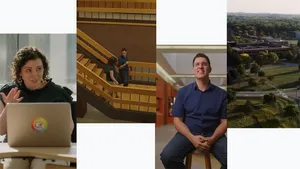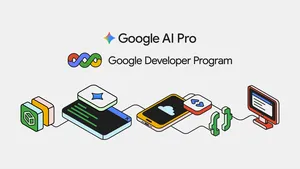Google AI Impact Challenge: a week to apply, plus research on why you should
In my twelve years at Google, I've seen that big things happen when you don't shy away from big ideas—especially when you pair those ideas with emerging technology. We're trying to encourage more of that kind of thinking with the Google AI Impact Challenge, a call for organizations to use AI to help address social, humanitarian and environmental problems. Before you read on, remember this: there are only seven days left to apply to the Challenge!
Hundreds of nonprofits and research organizations have already applied, and there’s good reason for all the excitement. Recently, we collaborated with McKinsey on research to identify ways AI can drive social change. The resulting report shows that AI projects have the potential to improve all 17 of the United Nations Sustainable Development Goals: end poverty and hunger, promote good health and wellbeing for all, and several more.
What works?
According to the research, AI has the greatest potential for impact in four areas: health and hunger, education, justice, equality and inclusion. AI can have the largest and most immediate impact through the application of computer vision, giving machines the ability to understand images and videos, and natural language processing, teaching computers to parse and understand human languages.
Computer vision can be used to improve health through better disease detection, our environment through wildlife tracking, and our education through new forms of learning for people with different learning capabilities. You’ve seen natural language processing at work in chatbots, which make the job-seeking process more efficient, or allow for better interaction between people seeking medical help and health providers.
What’s the hold up?
While AI cannot solve every problem, its potential is profound. So why isn’t every nonprofit and social entrepreneur embracing it? Three of the greatest challenges are access to talent, access to relevant data, and the capacity to deploy and sustain an AI project once it’s created. Nonprofits and their funders, the private sector and governments will need to work together to address these challenges.
To solve for talent scarcity, we need to continue to push for more education globally—especially for professionals willing to pursue AI. Private and public sector organizations may be able to open access to subsets of their data that could serve the clear public interest. Tools like Dataset Search are making it easier to discover potentially relevant datasets. Also, Nonprofits should look for opportunities to collect and share data most relevant to the problems they are looking to address. Finally, funders should consider how they can best support the ongoing deployment of AI projects and ensure social sector professionals have access to basic AI training.
McKinsey’s findings also show that to be successful, AI tools and techniques must be applied responsibly: clear principles must be established so that the solutions consider potential negative impacts—like the perpetuation of bias—on disadvantaged populations.
So, back to what I told you to remember: applications for the AI Impact Challenge close in seven days, on January 22 (@ 11:59:59 PST, to be exact). I’ll be part of an international panel of expert reviewers that will review all finalists and ultimately decide which ones will receive funds from our $25 million pool as well as other resources. We're excited to see what you come up with.







